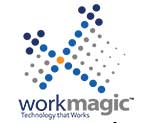Machines Don't Care: The Impersonal Efficiency of Automation
In today’s rapidly evolving technological landscape, the rise of automation and artificial intelligence (AI) has brought about profound changes in various sectors. From manufacturing to customer service, machines and algorithms are increasingly taking on roles that were once exclusively human. While this transition offers numerous advantages in terms of efficiency and cost savings, it also introduces a critical consideration: machines don’t care. This phrase encapsulates the fundamental difference between human and machine-driven processes, highlighting the impersonal nature of automation.
The Impersonal Efficiency of Machines
1. Unwavering Consistency
Machines excel in performing repetitive tasks with a level of consistency that humans cannot match. They don’t experience fatigue, distraction, or emotional fluctuations, ensuring uniformity in their output. This consistency is invaluable in industries where precision and reliability are paramount, such as manufacturing, data processing, and quality control.
2. Scalability and Speed
Automation enables businesses to scale their operations rapidly and handle large volumes of work in a fraction of the time it would take a human workforce. Algorithms can process vast amounts of data, perform complex calculations, and execute tasks at lightning speed. This capability is particularly beneficial in sectors like finance, healthcare, and logistics, where timely processing of information is crucial.
3. Cost Efficiency
Deploying machines and AI systems can lead to significant cost savings over time. Once developed and implemented, these systems incur lower operational costs compared to human employees. They don’t require salaries, benefits, or breaks, and can work around the clock without incurring overtime expenses.
The Human Element: What Machines Lack
1. Empathy and Understanding
One of the most significant limitations of machines is their inability to empathize or understand human emotions. In fields such as customer service, healthcare, and education, the human touch is often essential for effective communication and support. Machines can provide information and perform tasks, but they cannot offer the emotional intelligence needed to build rapport and trust.
2. Creativity and Innovation
While AI can analyze data and generate insights, it lacks the innate creativity and innovative thinking that humans possess. Many breakthroughs in science, art, and technology stem from human intuition and the ability to think outside the box. Machines can assist in the creative process, but they cannot replace the unique spark of human ingenuity.
3. Ethical Judgment
Machines operate based on pre-defined algorithms and data inputs, which means they lack the capacity for ethical judgment and moral reasoning. This can lead to challenges in scenarios where nuanced decision-making is required. For instance, in the legal and medical fields, ethical considerations often play a crucial role in determining the best course of action.
Balancing Automation with Human Touch
1. Enhancing Human Capabilities
Rather than replacing humans, automation should be seen as a tool to enhance human capabilities. By automating repetitive and time-consuming tasks, employees can focus on more complex, strategic, and creative aspects of their work. This collaboration between humans and machines can lead to greater overall productivity and innovation.
2. Maintaining Human Oversight
It is essential to maintain human oversight in automated processes to ensure ethical standards and emotional intelligence are upheld. Humans can provide the critical judgment and empathy that machines lack, ensuring that automation serves the best interests of all stakeholders.
3. Continuous Learning and Adaptation
As technology evolves, so too should our approach to integrating machines into our workflows. Continuous learning and adaptation are key to leveraging the full potential of automation while mitigating its limitations. By staying informed about the latest advancements and best practices, organizations can create a harmonious balance between machine efficiency and human values.

Conclusion
The phrase “machines don’t care” underscores the inherent difference between human and machine-driven processes. While machines offer unparalleled efficiency, scalability, and cost savings, they lack the empathy, creativity, and ethical judgment that humans bring to the table. By recognizing these distinctions and strategically integrating automation with human oversight, we can harness the strengths of both to drive progress and innovation in a responsible and balanced manner.
